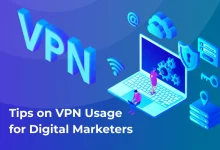
As mobile devices continue to dominate the digital landscape, investing in mobile marketing is crucial for businesses to stay competitive, enhance customer engagement, and maximize their reach in today’s mobile-centric world. It simply defines the practice of reaching and engaging with target audiences through mobile devices such as smartphones and tablets. With the ever-increasing adoption and usage of mobile devices, this form of marketing has become essential for businesses to connect with their customers effectively. Mobile marketing offers numerous benefits, including the ability to deliver personalized and location-based messages, reach customers on-the-go, and provide seamless user experiences through mobile apps and optimized websites. It encompasses various strategies such as mobile advertising, SMS marketing, mobile apps, and mobile-friendly website design. Mobile marketing allows businesses to target specific demographics, track user behaviour and engagement, and tailor marketing campaigns accordingly.
Types of Mobile Marketing
It encompasses various strategies and channels to reach and engage with target audiences through mobile devices. The key is to select the channels and tactics that align with your business goals, target audience, and budget, while ensuring a seamless and engaging experience for mobile users.
Mobile Advertising
This involves displaying ads on mobile websites, apps, or within mobile games. Mobile ads can take different forms, such as banner ads, interstitial ads, native ads, or video ads. They can be targeted based on factors like demographics, location, interests, or user behavior.
SMS (Short Message Service) Marketing
It involves sending promotional messages or alerts directly to users’ mobile phones via text messages. It is an effective way to deliver time-sensitive offers, coupons, appointment reminders, or important updates. However, it’s important to obtain user consent and follow local regulations regarding SMS marketing.
Mobile Apps
Developing a mobile app specific to your business allows you to engage with customers directly on their smartphones. Mobile apps provide a dedicated platform for delivering personalized content, sending push notifications, offering loyalty programs, and facilitating seamless transactions. They can enhance user experience and foster customer loyalty.
Mobile-Friendly Websites
With the increasing use of smartphones for browsing, having a mobile-friendly website is crucial. Mobile optimization ensures that your website is responsive, loads quickly, and provides a user-friendly experience on smaller screens. It enables users to easily navigate, access information, and make purchases on their mobile devices.
Location-Based Marketing
It utilizes the user’s geographic location to deliver targeted and relevant content. It can include strategies such as geofencing, which triggers notifications or offers when a user enters a specific location, or beacon technology, which uses Bluetooth signals to deliver personalized messages to users in proximity to a beacon device.
Mobile Search Marketing
With the popularity of mobile search engines, optimizing your website and content for mobile search is vital. It focuses on improving your mobile search rankings and visibility, ensuring that your business is easily discoverable when users search for relevant keywords on their mobile devices.
Mobile Social Media Marketing
Social media platforms are heavily used on mobile devices. Mobile social media marketing involves creating and sharing engaging content, running mobile-specific ad campaigns, and interacting with your audience through platforms such as Facebook, Instagram, Twitter, and LinkedIn.
QR Codes
They are scannable codes that can be used to direct users to specific landing pages, promotions, or app downloads. QR codes are often displayed on physical marketing materials, such as posters, flyers, or product packaging, and can be scanned using a smartphone’s camera.
Benefits of Mobile Marketing

Mobile marketing offers numerous benefits for businesses looking to connect with their target audience in a mobile-centric world.
- Wide Reach – Mobile devices have become an integral part of people’s lives, with a large percentage of the global population owning smartphones.
- Personalized and Targeted Messaging – It enables businesses to deliver personalized messages to their audience based on their demographics, location, interests, and behaviour.
- Immediate and Timely Communication – Its channels, such as SMS or push notifications, allow for instant communication with customers. Businesses can send time-sensitive offers, updates, reminders, or alerts directly to users’ mobile devices, ensuring timely and effective communication.
- Higher Open and Response Rates – Compared to other marketing channels, mobile marketing tends to have higher open and response rates. SMS messages, for example, have a significantly higher open rate compared to email.
- Enhanced Customer Engagement – Mobile apps and mobile-optimized websites provide a more interactive and engaging user experience. Through features like push notifications, in-app messaging, personalized content, and loyalty programs, businesses can keep customers engaged, foster brand loyalty, and encourage repeat interactions and purchases.
- Location-Based Targeting – It allows businesses to leverage location data to deliver location-specific offers, promotions, or recommendations. This enables businesses to target customers who are in close proximity to their physical stores, increasing foot traffic and driving conversions.
- Data and Analytics – It provides valuable data and insights about customer behavior, preferences, and engagement patterns. Businesses can track metrics such as app downloads, app usage, click-through rates, and conversions, allowing for data-driven decision-making and optimization of marketing strategies.
- Integration with Other Channels – Mobile marketing can be seamlessly integrated with other marketing channels, such as social media, email marketing, or offline advertising. This creates a cohesive and multi-channel marketing approach, ensuring consistent messaging and a holistic customer experience.
- Cost-Effective – It can be a cost-effective strategy, especially for small and medium-sized businesses. Compared to traditional advertising methods, mobile marketing channels often have lower costs and higher return on investment (ROI).
Best Practices To Implement
By following these best practices, you can maximize the effectiveness of your mobile marketing efforts, deliver exceptional user experiences, and drive meaningful results for your business.
- Mobile-Friendly Design – Ensure that your website, landing pages, and emails are optimized for mobile devices.
- Clear and Concise Messaging – Mobile screens have limited space, so it’s important to keep your messaging clear, concise, and to the point.
- Personalization and Targeting – Leverage user data and segmentation to deliver personalized and targeted messages.
- Optimize for Local Search – Capitalize on local search by optimizing your online presence for local queries.
- Leverage SMS Marketing Wisely – If using SMS marketing, obtain proper consent from users and follow legal regulations regarding messaging frequency and content.
- Utilize Mobile App Push Notifications – If you have a mobile app, use push notifications to engage with your app users. Segment your audience to send targeted and personalized notifications based on user preferences, behavior, or location.
- Test and Optimize – Continuously test and optimize your mobile marketing campaigns. Conduct A/B tests to determine the most effective strategies, such as different ad creatives, CTAs, or messaging.
- Integrate with Other Channels – Integrate your mobile marketing efforts with other channels to create a cohesive and consistent customer experience.
- Prioritize Speed and Performance – Mobile users expect fast and smooth experiences. Optimize your website and app for speed and performance, minimizing loading times and ensuring a seamless browsing and purchasing process.







